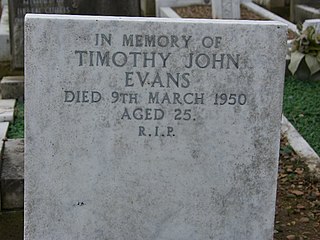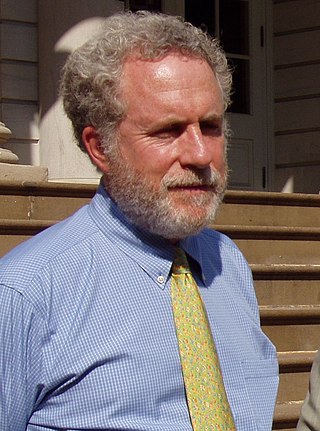Related Research Articles
Innocence Project, Inc. is a 501(c)(3) nonprofit legal organization that is committed to exonerating individuals who have been wrongly convicted, through the use of DNA testing and working to reform the criminal justice system to prevent future injustice. The group cites various studies estimating that in the United States between 1% and 10% of all prisoners are innocent. The Innocence Project was founded in 1992 by Barry Scheck and Peter Neufeld who gained national attention in the mid-1990s as part of the "Dream Team" of lawyers who formed part of the defense in the O. J. Simpson murder case.

A miscarriage of justice occurs when an unfair outcome occurs in a criminal or civil proceeding, such as the conviction and punishment of a person for a crime they did not commit. Miscarriages are also known as wrongful convictions. Innocent people have sometimes ended up in prison for years before their conviction has eventually been overturned. They may be exonerated if new evidence comes to light or it is determined that the police or prosecutor committed some kind of misconduct at the original trial. In some jurisdictions this leads to the payment of compensation.

Innocence Canada, is a Canadian, non-profit legal organization. Based in Toronto, Innocence Canada identifies, advocates for, and helps exonerate individuals who have been convicted of a serious crime which they did not commit and to preventing future wrongful convictions through education and justice system reform.

Peter J. Neufeld is an American attorney, co-founder, with Barry Scheck of the Innocence Project, and a founding partner in the civil rights law firm Neufeld Scheck & Brustin. Starting from his earliest years as an attorney representing clients at New York's Legal Aid Society, and teaching trial advocacy at Fordham School of Law from 1988 to 1991, he has focused on civil rights and the intersection of science and criminal justice.
Actual innocence is a special standard of review in legal cases to prove that a charged defendant did not commit the crimes that they were accused of, which is often applied by appellate courts to prevent a miscarriage of justice.
Wrongful execution is a miscarriage of justice occurring when an innocent person is put to death by capital punishment. Cases of wrongful execution are cited as an argument by opponents of capital punishment, while proponents say that the argument of innocence concerns the credibility of the justice system as a whole and does not solely undermine the use of the death penalty.
Exoneration occurs when the conviction for a crime is reversed, either through demonstration of innocence, a flaw in the conviction, or otherwise. Attempts to exonerate convicts are particularly controversial in death penalty cases, especially where new evidence is put forth after the execution has taken place. The transitive verb, "to exonerate" can also mean to informally absolve one from blame.
An innocence commission is a legal commission set up by a government for post-conviction review of cases, to try to ensure that wrongful convictions do not stand and that no innocent person is executed.
The Innocence Network is an affiliation of organizations dedicated to providing pro bono legal and investigative services to individuals seeking to prove innocence of crimes for which they have been convicted and working to redress the causes of wrongful convictions. Most organizations involved are in the United States, covering all 50 states; however, the network includes organizations in Canada, Australia, the Netherlands and the UK.
In United States federal criminal law, the Innocence Protection Act is the first federal death penalty reform to be enacted. The Act seeks to ensure the fair administration of the death penalty and minimize the risk of executing innocent people. The Innocence Protection Act of 2001, introduced in the Senate as S. 486 and the House of Representatives as H.R. 912, was included as Title IV of the omnibus Justice for All Act of 2004, signed into law on October 30, 2004 by President George W. Bush as public law no. 108-405.
Earl Washington Jr. is a former Virginia death-row inmate, who was fully exonerated of murder charges against him in 2000. He had been wrongfully convicted and sentenced to death in 1984 for the 1982 rape and murder of Rebecca Lyn Williams in Culpeper, Virginia. Washington has an IQ estimated at 69, which classifies him as intellectually disabled. He was coerced into confessing to the crime when arrested on an unrelated charge a year later. He narrowly escaped being executed in 1985 and 1994.
Clarence Arnold Elkins Sr. is an American man who was wrongfully convicted of the 1998 rape and murder of his mother-in-law, Judith Johnson, and the rape and assault of his wife's niece, Brooke Sutton. He was convicted solely on the basis of the testimony of his wife's six-year-old niece who testified that Elkins was the perpetrator.
The innocent prisoner's dilemma, or parole deal, is a detrimental effect of a legal system in which admission of guilt can result in reduced sentences or early parole. When an innocent person is wrongly convicted of a crime, legal systems which need the individual to admit guilt — as, for example, a prerequisite step leading to parole — punish an innocent person for their integrity, and reward a person lacking in integrity. There have been cases where innocent prisoners were given the choice between freedom, in exchange for claiming guilt, and remaining imprisoned and telling the truth. Individuals have died in prison rather than admit to crimes that they did not commit.
The National Registry of Exonerations is a project of the University of Michigan Law School, Michigan State University College of Law and the University of California Irvine Newkirk Center for Science and Society. The Registry was co-founded in 2012 with the Center on Wrongful Convictions at Northwestern University School of Law to provide detailed information about known exonerations in the United States since 1989. As of February 6, 2020, the Registry has 2,551 known exonerations in the United States since 1989. The National Registry does not include more than 1,800 defendants cleared in 15 large-scale police scandals that came to light between 1989 and March 7, 2017, in which officers systematically framed innocent defendants.
James Earl Coleman Jr. is an American attorney. He currently serves as the John S. Bradway Professor of Law and Director of the Center for Criminal Justice and Professional Responsibility at the Duke University School of Law. He was the primary member of the last defense team of serial killer Ted Bundy.
In law, post conviction refers to the legal process which takes place after a trial results in conviction of the defendant. After conviction, a court will proceed with sentencing the guilty party. In the American criminal justice system, once a defendant has received a guilty verdict, they can then challenge a conviction or sentence. This takes place through different legal actions, known as filing an appeal or a federal habeas corpus proceeding. The goal of these proceedings is exoneration, or proving a convicted person innocent. If lacking representation, the defendant may consult or hire an attorney to exercise his or her legal rights.
The Illinois Innocence Project, a member of the national Innocence Project network, is a non-profit legal organization that works to exonerate wrongfully convicted people and reform the criminal justice system to prevent future injustice.

The California Innocence Project is a non-profit based at California Western School of Law in San Diego, California, United States, which provides pro bono legal services to individuals who maintain their factual innocence of crime(s) for which they have been convicted. It is an independent chapter of the Innocence Project. Its mission is to exonerate wrongly convicted inmates through the use of DNA and other evidences.
The Ford Heights Four were formerly imprisoned convicts, who were falsely accused and convicted of the double murder of Lawrence Lionberg and Carol Schmal in Ford Heights, Illinois, and later exonerated. Jimerson and Williams were sentenced to death, Adams to 75 years in prison and Rainge to life. Following the murder in 1978, the four spent almost two decades in prison before being released in 1996. This miscarriage of justice was due to false forensic testimony, coercion of a prosecution witness, perjury by another witness who had an incentive to lie, and prosecution and police misconduct. The DNA evidence uncovered in the investigation to clear their names eventually led to the arrest and conviction of the real killers.
The Center on Wrongful Convictions of Youth, part of Northwestern University Pritzker School of Law's Bluhm Legal Clinic, is a non-profit legal clinic that represents children who have been convicted of crimes they did not commit. Founded by Northwestern Law Professor Steven Drizin and directed by Professor Laura Nirider, it is the first organization in the world to focus exclusively on wrongfully convicted children. Through its intertwined research, scholarship, teaching, and advocacy, the Center has developed expertise in the problem of false confessions, police interrogation practices, and constitutional doctrine governing the interrogation room.
References
- ↑ "The Innocence Project Starts Thursday 9 November at 8.00pm on BBC ONE" BBC.co.uk (Press Office), 5 October 2006 (Retrieved: 18 July 2009)
- ↑ "The Innocence Project — new drama for BBC ONE follows a group of ambitious law students" BBC.co.uk (Press Office), 16 May 2006 (Retrieved: 18 July 2009)
- ↑ Smallman, Etan (23 April 2007). "The Innocence Squad". The Times . Retrieved 18 July 2009.
- ↑ Dowell, Ben (3 December 2006). "Innocence lost on BBC1 viewers". The Observer . Retrieved 18 July 2009.
- ↑ "About Us". Innocence Project. Retrieved 12 December 2006.
- ↑ "Mission Statement". Innocence Network. Retrieved 12 December 2006.
- ↑ "Case Profiles". Innocence Project. Archived from the original on 9 December 2006. Retrieved 12 December 2006.
- ↑ "Innocence Network UK". innocencenetwork.org.uk.
- ↑ "University of Bristol Innocence Project". University of Bristol Law School.